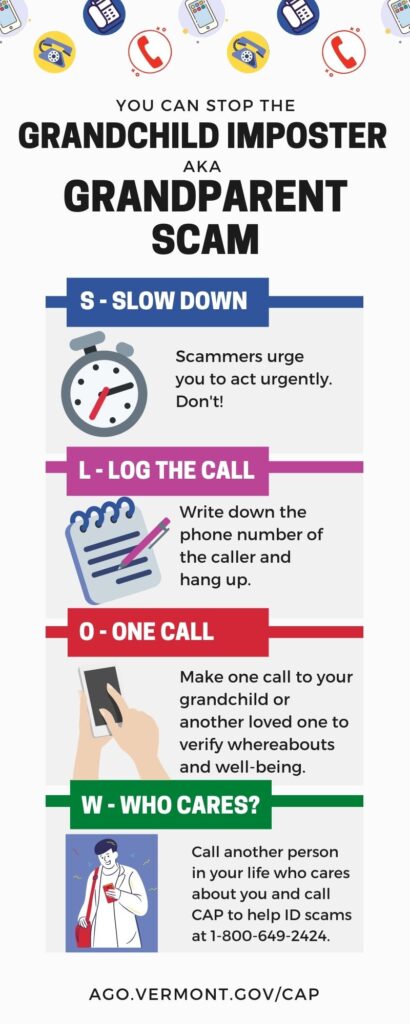Contributing Writer: Crystal Baldwin
“Grandma, it’s me, I am in prison…”
“Grandpa, I’m in the hospital. I need help…”
“Nanna and Poppa, I had a bad car accident, and people are injured…”
No matter what the scammers say when they initiate the “Grandparent” scam, the introduction is sure to spike emotion. That is what they hope. They call claiming to be one of your most cherished loved ones—your grandchild—and ignite fear that those you care about are in dire need. With emotions running high and deep, how can you not engage with the call, stay on the line, and find out more? You are worried and feel helpless because all you have to validate this story is the phone in your hand and the fear of what if. What if you do nothing and your grandchild really is in trouble?
It is so hard. What if the very phone where you received the call is also what will reveal the mystery? What if all you needed was your phone and a reminder to slow down? Would receiving this daunting call be any easier?
Today, our office issued an alert about the grandchild imposter scam, commonly referenced as the grandparent scam, because it targets grandparents and their unwavering generosity and care for their loved ones. This scam is successful because the scammers know our grandparents care, and they know the psychology behind how difficult it is to think through problems when emotions are high.

When you receive one of these jarring calls, here is what you can do:
Take steps to verify by remembering SLOW:
S – Slow down. The scammers urge you to act urgently. Don’t.
L – Log the call. For your assurance, write down the phone number of the caller and hang up.
O – One call. Make a call to your grandchild or another who can verify your grandchild’s whereabouts and well-being.
W – Who cares? Call another person in your life who cares about you. Know that you can call CAP at 1-800-649-2424. We care and can help identify scams.
Before this scam happens to you, you can take steps now to create a scam action plan with your family. Keep the SLOW reminder near your phone. With family, consider creating an uncommon family code word or PIN that you agree to not share publicly. Make a phone tree of reliable contacts to call if a scam like this is received. Act now to prevent future loss.
Help us stop these scams by sharing this information with those you care about.
If you have lost money to this scam, please contact the Consumer Assistance Program right away at 800-649-2424.
For more information on the Attorney General’s efforts to support and protect older Vermonters, visit the webpage of the Attorney General’s Elder Protection Initiative.
